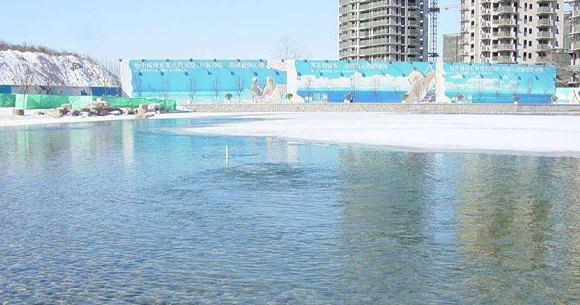Understanding Scale Formation and Corrosion Inhibitors in Chemical Processes and Treatments
Scale and Corrosion Inhibitor Chemicals Ensuring Efficiency in Industrial Operations
In the world of industrial processes, the integrity and efficiency of equipment are paramount. One of the significant challenges faced by industries, particularly those involving water systems like cooling towers, boilers, and pipelines, is the formation of scale and the occurrence of corrosion. Scale formation, primarily composed of mineral deposits, and corrosion, the gradual destruction of materials due to chemical reactions, can severely impact operational efficiency, increase maintenance costs, and lead to unscheduled downtime. To combat these issues, scale and corrosion inhibitor chemicals are essential.
Scale formation often occurs when water, containing dissolved minerals such as calcium and magnesium, is heated or evaporated. As the concentration of these minerals increases, they precipitate out of the solution and form hard deposits on equipment surfaces. This accumulation can lead to reduced heat transfer efficiency, increased energy consumption, and ultimately, equipment failure if not addressed. On the other hand, corrosion can occur due to various factors, including the presence of oxygen, acidic conditions, and other aggressive chemicals in the environment. It weakens the structural integrity of materials, leading to leaks, failures, and safety hazards.
To prevent these issues, industries utilize scaling and corrosion inhibitor chemicals, which are specially formulated to minimize the impact of these detrimental processes. Scaling inhibitors work by interfering with the crystallization of mineral deposits, thus preventing them from adhering to surfaces. They can be categorized into several types, including phosphonates, polyacrylic acids, and various polymeric compounds. Each of these has specific mechanisms that disrupt the formation of scale and help maintain smooth, clean surfaces in piping and equipment.
scale and corrosion inhibitor chemicals

Corrosion inhibitors, on the other hand, function by forming a protective film on the surface of metals, which acts as a barrier against corrosive agents. These inhibitors can be classified into several categories, including anodic inhibitors, cathodic inhibitors, and mixed inhibitors. Anodic inhibitors help by passivating the metal surface, while cathodic inhibitors reduce the flow of electrons at the cathode site. Mixed inhibitors provide dual functionality by affecting both anodic and cathodic reactions, thereby providing comprehensive protection.
The selection of appropriate scale and corrosion inhibitors depends on various factors, such as the operational conditions, water chemistry, and the specific materials used in the equipment. It is crucial to conduct thorough water analysis and compatibility tests to choose the right inhibitors that will effectively mitigate scale and corrosion while being cost-effective and environmentally friendly.
In recent years, the development of eco-friendly inhibitor chemicals has gained momentum due to increasing regulatory pressures and the need for sustainable practices in industry. These green alternatives minimize environmental impact and reduce toxicity while maintaining effectiveness in protecting equipment.
In conclusion, scale and corrosion pose significant threats to industrial operations, impacting efficiency, safety, and longevity of equipment. Utilizing the appropriate scale and corrosion inhibitor chemicals is critical for maintaining operational stability and reducing maintenance costs. As industries continue to evolve and face new challenges, the importance of these chemicals in safeguarding valuable equipment cannot be overstated. Investing in the right chemical treatments not only protects assets but also contributes to the overall efficiency and sustainability of industrial processes.
-
Water Treatment with Flocculant Water TreatmentNewsJun.12,2025
-
Polymaleic AnhydrideNewsJun.12,2025
-
Polyaspartic AcidNewsJun.12,2025
-
Enhance Industrial Processes with IsothiazolinonesNewsJun.12,2025
-
Enhance Industrial Processes with PBTCA SolutionsNewsJun.12,2025
-
Dodecyldimethylbenzylammonium Chloride SolutionsNewsJun.12,2025





